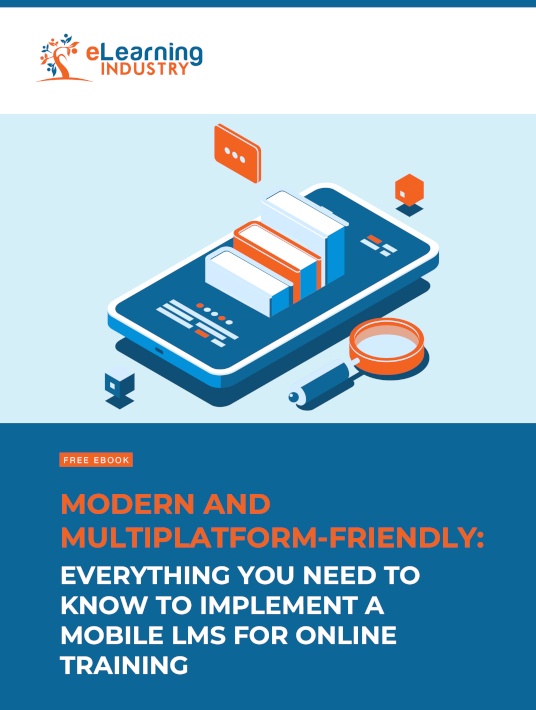How LMS Applications And Mobile LMS Can Help You Retain Your Top Sales Talent
A company can't survive without salespeople. But sales staff are also the ficklest members of any organization. They get more external exposure, which means they have more opportunities to be tempted by... opportunities. And because sales is a multi-faceted skill, it’s easily transferable, even to competing goods, services and brands. So how can you utilize mobile training tools to keep your sales powerhouse happy? Here are 5 ways that LMS applications can help you retain your top sales talent and keep them right where they belong.

1. Peer Feedback Systems
Online training is usually a pretty solitary affair. When it’s done using mobile LMS, it can feel even more isolating. At the same time, LMS applications can be an effective collaboration tool. The average LMS gives admin the capability of forming groups. The admin could create a closed community for your sales team, allowing them to learn from each other. This works even when they’re not in the same physical space. In fact, it’s especially functional for remote sales teams. Here’s an example: Instead of the typical cold-call simulation, make it a synchronized group class in real time. One employee can make the call while the others listen. They can then point out, gently and respectfully, where the caller went wrong. They can offer tips, both from the mobile training course and from their own experience. The employee in question can then repeat the exercise or someone else can have a go, using the offered advice. This system isn’t as easy with desktop training, because physical proximity can make it harder to get comfortable. The ‘digital distance’ helps.
2. Fosters A Sense Of Community
Sales employees rarely get to check in with colleagues. However, mobile apps provide a community which sales teams can tap into. As they network and learn from each other, they form professional attachments that are good for your retention levels. A locally deployed LMS is useful for personnel management and office tasks. Native apps are more effective for training on the go. Sales teams can seek help right in the middle of a sale. They can pull up a relevant how-to instruction. Or they can log into the sales chat room and be coached through the process with the help of online instructors and colleagues. They can even put an earbud in and receive voice prompts whilst talking to the customer. A similar activity takes place during simulations and branching scenarios, where pop-up boxes offer recommended phrases. With mobile training LMS applications, this type of tutorial can come through live feeds from other salespersons or chatbots and audio recordings of FAQs. With mobile sales training, your team is never on their own.
3. Enhanced Product Knowledge
Your sales team knows your catalog better than anyone. But even they get caught up sometimes with hundreds of products on offer. Mobile training tools provide palm-sized product listings on demand. Any new products or rebranding activities are easily and instantly updated. This provides an invaluable resource for salespeople. LMS applications, unlike commercial courses, can drill down even further. For example, you can program a similar functionality. Sales teams can request two products, side by side. This way, they can confidently explain to sales prospects why one product suits them better than the other. It helps customers feel understood as if the sales team is addressing their specific, personal needs. And it’s an incredibly effective tool for up-selling. Outside of comparative scenarios, mobile LMS can be used to point out the USP of each product. It gives your sales team something to build around.
4. Provide JIT Support
You don’t get quite the same efficacy with desk-based LMS training. It lacks the intimacy and immediacy of the mobile phone. Your top sales talent is more likely to stay with your organization if they get ongoing support that addresses vital gaps and goals. As an example, a mobile JIT library that enables them to brush up on related skills and assess their product knowledge on their own. They’ll respect the fact that your organization cares about their continual development and is willing to offer them easily accessible support resources.
5. Offer Personalized Training Catalogs
Mobile sales training allows you to custom-tailor on-the-go course catalogs for every member of your team. The items on their list might be based on personal skill gaps, job duties or product niches. For example, remote sales staff who are in charge of pitching your newest product line will have different online training activities than your in-house employees. You can even assign personalized certification programs to ensure that everyone is caught up and in compliance. Better still, they can access their customized online catalogs from anywhere in the world, whenever they have some downtime.
Training via LMS applications can save your company lots of money. While you don’t generally buy smartphones for your staff you could get matching sets for your salespeople. It ensures uniformity in their mobile training access and can give them tailored communication tools. They can form their own training support groups. Mobile LMS facilitates feedback, both among corporate learners and up the chain to supervisors. The team can help each other in JIT scenarios and boost their product knowledge. The individual and group training options afforded by native mobile training apps create a cohesive sales team. And this sense of comradeship helps your retention strategy because your sales staff treat each other like family. This sense of belonging, acceptance and mutual motivation is good for everybody’s bottom line.
Wondering which costly mistakes not to make when implementing a mobile LMS and tips to develop a realistic timeline for mobile LMS implementation? Download our eBook Modern And Multiplatform-Friendly: Everything You Need To Know To Implement A Mobile LMS For Online Training to learn how a mobile LMS can help you implement a modern and multiplatform-friendly training program. It offers tips on how to stay on top of trends before investing in your new system, as well as budgeting factors you should bear in mind when choosing a mobile LMS for external partners.









